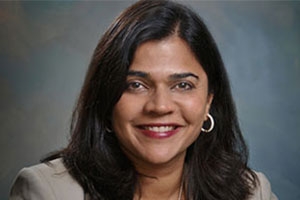Communications
Digital Diplomacy: Changing the World Through Communication

What blends foreign policy, digital media, and public engagement and is one of the fastest-growing communications sectors? Digital Diplomacy, and it’s the topic of an upcoming SOC week panel coordinated by Priya Doshi, professor of public relations at American University School of Communication (AU SOC), Tuesday, Feb. 23 from 1:00-2:30. The panel will be moderated by Senior Associate Dean for Academic Affairs Kathy Fitzpatrick and includes three AU alums, including Storm Horcastle (MA/SOC ’14) and Eva Glas (BA/SOC ’14).
Doshi has spent most of her career working on communications initiatives for international policy issues for governments and non-profit organizations including the British and Swiss Embassies, the Meridian International Center, the Carnegie Endowment for International Peace, and the Rights Working Group. SOC sat down with Doshi to find out more about the event and public diplomacy.
School of Communication: What is Digital Democracy?
Priya Doshi: Digital diplomacy is a newer field whereby governments are engaging directly with foreign publics via social media. In traditional diplomacy government officials from different countries were only talking to one another. Today we have a much more horizontal and democratized exchange of information. Governments including our own are now engaging on a number of social media platforms with foreign publics to provide information, understand public opinion, and be part of the conversations impacting their foreign policies.
SOC: Why did you think this would be an important SOC Week panel?
PD: This panel offers a view into a little understood new and niche field that I know many students will find fascinating. It is at the intersection of foreign policy, digital media, and public engagement--three things about which AU students are passionate.
SOC: The panel includes embassy representatives, state department and a private consulting company. What made you select them?
PD: The panelists were selected to reflect a variety of viewpoints on this topic. We have two from foreign embassies (the British and the Norwegian), one from the State Department in a senior public diplomacy role, and two from the private sector where they work with foreign government clients to manage their digital diplomacy outreach. We've also made sure to reflect different levels of experience and include AU alums who can tell students how the SOC experience helped them to land jobs in this exciting new field.
SOC: Why is SOC's Kathy Fitzpatrick a good moderator for the panel?
PD: Senior Associate Dean Kathy Fitzpatrick is the perfect moderator because she has a wealth of experience as both a public diplomacy practitioner and scholar. She has been studying this field for decades and has seen how diplomacy has evolved from closed elite exchange to one that leverages a diversity of views and perspectives.
SOC: Why should SOC students attend?
PD: SOC students should attend because I think they'll be surprised and excited by what they hear. Many of them are so adept at social media skills but perhaps haven't thought about they can be so valuable in shaping our world. From countering extremist messages to promoting cultural exchange, digital diplomacy is a vast and growing field that demands creativity and strategic thinking. Actually, I think that students from a variety of disciplines will find this interesting but especially students from SIS, SPA, Kogod, and CAS who take a lot of our classes to learn about the value of strategic communication. This is one of strategic communication's newest and fastest growing areas.